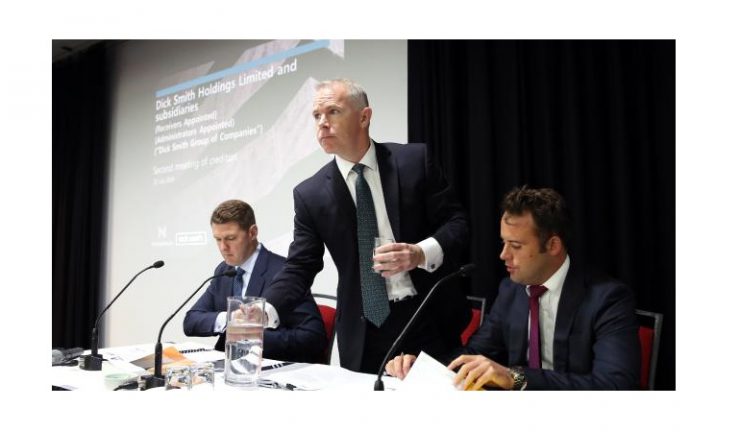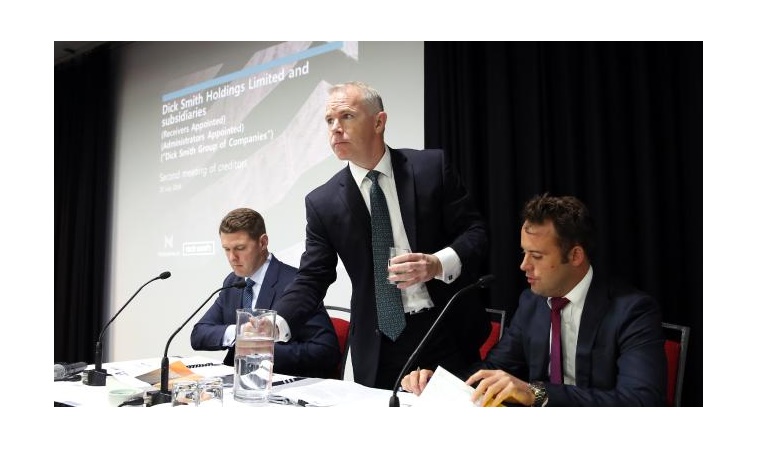Appoint liquidators.
The second Dick Smith creditors’ meeting was held at the Wesley Conference Centre in Sydney on Monday, where creditors voted to liquidate the company and appoint McGrathNicol as the liquidator. The key findings from the McGrathNicol report released on 13 July 2016 were presented at the meeting, where creditors also agreed to form a committee of inspection to consult with the liquidators.
Auditor Deloitte will be targeted by McGrathNicol for potential breach of accounting standards as some of the rebates in the report were classified as marketing rebates when they should have been classified as inventory rebates to inflate profit for the 2015 financial year.
Marketing rebates are recognised immediately as a profit, whereas inventory rebates are recognised when the inventory is sold, which may be in a later financial period. Dick Smith posted an EBITDA of $72 million in the 2015 financial year. Excluding rebates, it would have posted an EBITDA of minus $119 million.

McGrathNicol’s Jason Preston, Joseph Hayes, Jonathon Henry yesterday. Photo Credit: Jane Dempster.
The Australian reported McGrathNicol’s Jason Preston saying that the accounting of rebates had been an issue even before the company floated on the ASX.
“Rebates are a constant through the life of the business. In fact, prior to the private equity acquisition, the use of rebates and the accounting for them is topical and it’s something that has been in place for a very long time,” Preston said.
The article continued that McGrathNicol’s Joseph Hayes said the firm will be pursuing potential channels of recovery.
“Our focus now is furthering our work on causes of failure and beginning to look at documents to establish the date of insolvency and seeing what voidable transactions and other things we can advance in order to maximise chances of recovery,” Hayes said.
However, he reportedly said there was only a minor chance of unsecured creditors, including shareholders, of getting any money, due to the shortfall of between $240 million and $275 million.
“One would’ve thought, pessimistically, with the shortfall of this nature the prospect of any significant return to unsecured creditors is probably remote,” he said.

